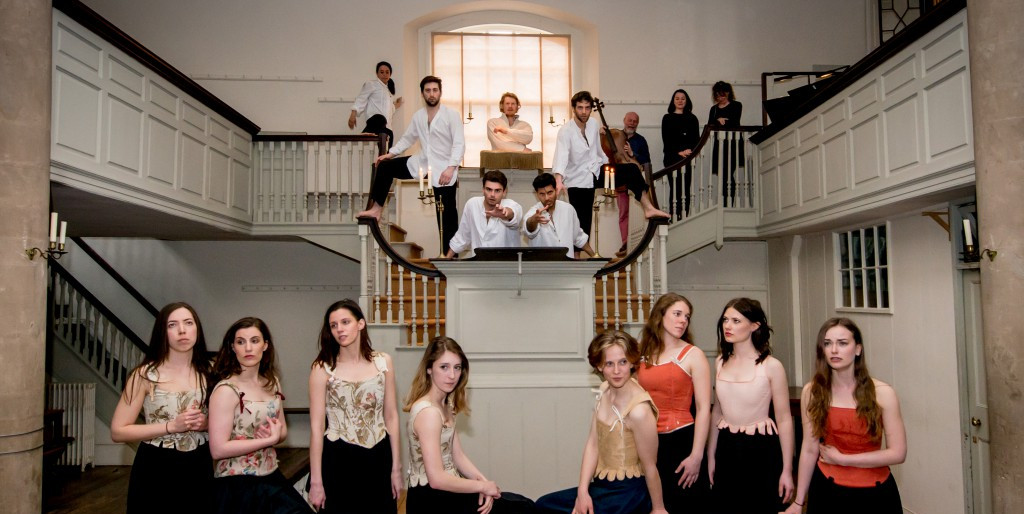
Frankenstein Adaptation
A new production of Mary Shelley’s classic novel was performed at John Wesley’s Chapel during Bristol800 starring Julian Rhind-Tutt. The adaptation was by Sara Davies, who reflects here on her experience.
I thought I knew Mary Shelley’s Frankenstein. But of course, like most people, I knew about it; I’d seen films, read Frankenstein-related novels, seen Frankenstein-inspired plays, heard about the stormy night Mary Shelley started writing it in the Villa Diodati. It’s one of those stories that are part of our cultural DNA.
When I read it, I realised this is a book with two emotional hearts. It’s a story about the dangers of irresponsible scientific experimentation, about Victor Frankenstein’s obsession, and his terror when he realises what he’s created. But it is as much the Creature’s story: Frankenstein’s poor unhappy creation takes a sizeable part of the narration. Rejection and profound loneliness corrupt his instinct for goodness and affection into hatred and murderous revenge. His appeals to Frankenstein are powerful and moving, and his rage when he understands Frankenstein can never love him is shocking and heart-rending.
I knew my adaptation had to give both Victor Frankenstein and his Creature a voice. But in the book both deliver long, sometimes complex and decidedly wordy speeches. Mary Shelley was fiercely intelligent and extremely well-educated, and she wanted to explore the ethical implications of the exciting scientific discoveries of her day, as well as the ideas around nature and nurture, education, parenthood and responsibility with which she’d grown up.
The long speeches had to go, as did many of the plot twists and turns that build suspense in the original. My job was to distil the book down so that the plot made sense, whilst keeping as much of the emotional and moral complexity, and the driving sense of impending doom, as I could. I also wanted to make the language simpler without losing its nineteenth-century flavour. I’m an abridger of books for radio, and used to losing anywhere from 70–80 per cent of a novel for reading aloud. Knowing that the performance was only an hour or so concentrated the mind: characters had to be ruthlessly excised, events simplified, dialogue pared to the bone. But the important elements – Victor’s ambition and subsequent horror and despair, the Creature’s passage from ignorance to self-knowledge and violent response, and the symbolism of the cruel, harsh landscapes in which the story unfolds – had to survive. In addition to cutting a swathe through the text, I had to create a sense of drama. Marilyn Imrie, the director, took my script and added her magic. Hopefully, between us, we’ve done justice to Mary Shelley and her extraordinary story.